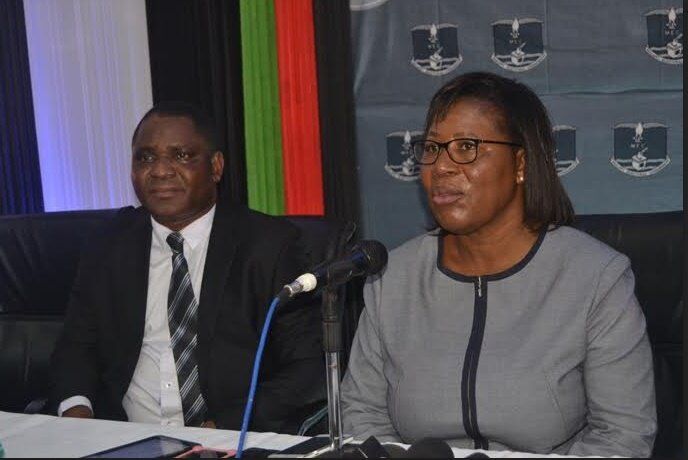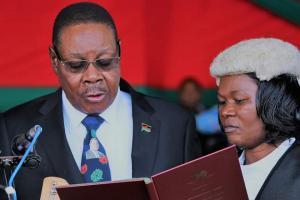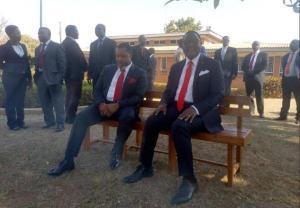
It’s been a damaging year for politics in Malawi. As we all know, the presidential election was held on May 21st last year, and yet nearly nine months on from that date, we still don’t have a consensus on the validity or legality of the result. The records show that President Mutharika was declared the winner, but Lazarus Chakwera has never accepted the result. He’s spent every waking moment of his time since then contesting the result – and he will soon find out whether or not he’s been successful.
According to press reports which broke at the start of the week, the Malawian Constitutional Court will finally hand down its long-awaited verdict this coming Monday, February 3rd. After that date, regardless of who wins or loses, Malawi will hopefully regain stability. Mutharika will either be allowed to serve the remainder of his term in peace, or the vote will be annulled, and the election will be re-run under the watchful eyes of an international audience keen to see that there can be no allegations of improper conduct this time around.
The case made by Chakwera and his Malawi Congress Party is that there were irregularities in the way that votes were cast and counted, and that the narrow victory claimed by the President is therefore illegitimate. His view is supported by the United Transformation Movement, and the matter has subsequently further been clouded by allegations that bribes have been offered to the judges who will rule on the latter. There appears to be some substance to the bribery allegations, as banker Thomson Mpinganjira was arrested last week over claims that he was personally involved in the attempts. Mpinganjira has long thought to have personal and financial ties to the DPP, although he’s consistently denied all such suggestions.

The official records of the elections show that Mutharika was victorious over Chakwera by a margin of just 159,00 votes. News of his victory was immediately met by angry protests throughout the country, and it wasn’t long before stories of doctored ballot sheets or results amended with correction fluid began to emerge in the press. The matter has been with the courts ever since, which judges and officials having to go about their work under intense public scrutiny that has included repeated calls for Mutharika to resign, and for the entire electoral commission to be sacked.
The news that a ruling is due on the case comes after a prolonged and protracted series of hearings that have lasted for more than six months and has involved the testimony of over a dozen expert witnesses and people close to the proceedings. The entire saga marks a low point in Malawi’s political history. Never in the fifty-plus years since the nation gained independence from Great Britain in 1964 have the results of a state election sparked so much controversy or been contested this way, and the public will be keen to see measures taken to ensure nothing like this ever happens again.
While we know that a verdict is now due, very few political commentators have been brave enough to say which way they expect the case to go. Given that Malawi is currently enjoying an economic boost from gambling, perhaps a gambling metaphor is appropriate. There are certain forms of gambling in which the result is foreseeable, such as playing poker or taking a 50/50 bet on roulette. There are other forms of gambling in which the result is not foreseeable, such as playing online slots on websites like Amigo Slots. Right now, the political landscape in Malawi is a lot more like an online slots game than a poker game. Much like in an online slots game where a bet has been placed, and the reels are spinning, all anyone can do now is wait for the spinning to stop and see what the results are. They cannot be influenced or changed, and once they arrive, they’ll come as a complete surprise.

We cannot even say for sure what will happen next after the court issues its ruling. If Mutharika is victorious, he’ll claim to have been vindicated, and that he’s been the victim of a political witch hunt. If Chakwere is victorious, he could either demand the Presidency or call for an immediate re-run of the election. Depending on the clarity of the court’s ruling and the evidence they cite as its foundation, either side may or may not accept that the matter has come to a close. If they don’t, then there may be even more legal wrangling in Malawi’s future.
For all the authority that the Constitutional Court has, it is not the ultimate arbitrator in the land. That power rests with the Supreme Court, and Monday’s losing party has the right to appeal to the Supreme Court if they so wish. Given how entrenched positions are on both sides of the argument, it’s hard to imagine any scenario in which the loser doesn’t do this immediately. That, in turn, could lead to the Supreme Court deciding that they don’t need to hear the case because the original verdict is clear, or they could order a fresh set of hearings and a fresh investigation. Should they choose that route, Malawi will once again be subject to political gridlock until the matter can be resolved.
The public’s confidence in the political process is already damaged by what we’ve seen during the past twelve months. A further series of court hearings and accusations won’t do anything to improve that, and will more likely make it far worse. A controversial or unclear verdict runs the risk of more protests, more disruptions, and more concern for the integrity of Malawian politics. It’s to be hoped, for the good of the country, that we can put this unfortunate matter behind us and move on together into the future. As both Mutharika and Chakwere have so much to lose, though, we expect that neither of them will take the opportunity to accept the verdict and step back if it’s presented to them. Malawi should brace itself for more court dates, and more distractions from the pressing domestic political matters that aren’t getting sufficient attention because of the dispute.














